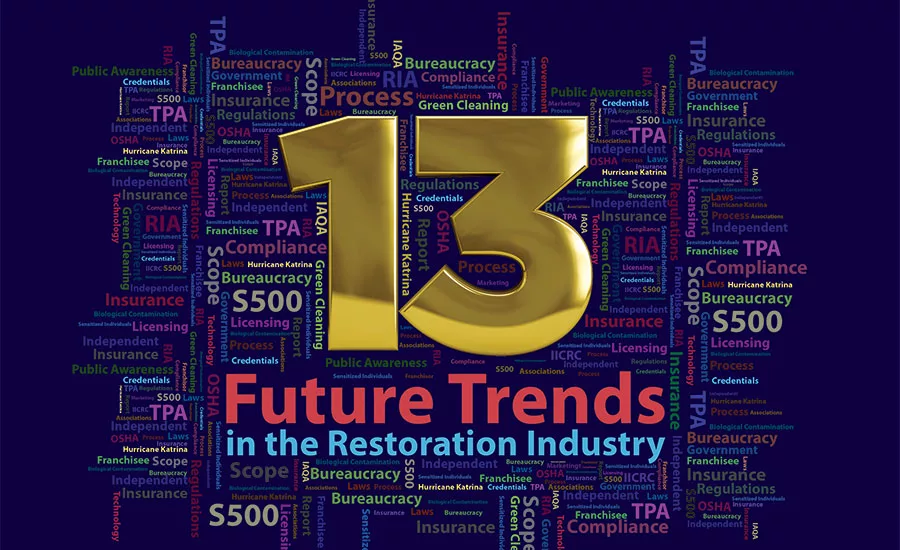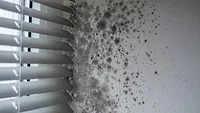13 Future Trends UPDATE: Struggling Franchises & Increased Bureaucracy
U.S. Supreme Court, OSHA, & State Involvement

In the January issue of R&R, you hopefully read the article titled 13 Future Trends in the Restoration Industry. It was based on a presentation I delivered at PLR Expo in Toronto last November. And you might be surprised to hear some of the items are already coming to fruition.
Over the last few weeks several news items have come to my attention which seem to validate predicted trend number five titled: Franchises May Struggle.
I warned restoration contractors to watch carefully as the U.S. government is pushing to say a franchisor is a co-employer with the franchisees. Although the Supreme Court case I was referencing in the presentation relates to the National Labor Relations Board and a decision about the franchisor having to be involved in union bargaining at the franchisee level, the push to make national franchisors responsible for their franchisees is coming from many levels of government.
Another blatant attack on the franchise model of doing business was just announced by the Occupational Safety and Health Administration (OSHA). According to reports from a number of safety experts, OSHA has issued draft guidance that requires their inspectors to determine whether franchisors and franchisees are joint employers during the course of their inspections.
If the OSHA inspector follows the draft letter, they would have to ask questions about the relationship between the corporate entity and the franchisee in order to determine their overall relationship, royalties paid, rules on brands and standards, etc. At that point, the OSHA inspector, who has no training in labor law, could somehow determine that the franchisee and the corporate office are joint employers. That would mean the national office could be liable for any safety violations identified at the franchisee's place of business. Although it is not yet clear whether this draft policy will ever make it to the field offices as an adjustment to the OSHA policy manual, it is certainly following the trend of putting franchisors under greater government scrutiny.
In a similar vein, my trend number three was titled: Bureaucracy Will Get Worse. During that discussion, I shared that there seems to be more of a “gotcha” mentality where agencies make examples of some businesses that make a mistake, rather than fostering growth and learning within businesses and helping them succeed, while following the rules.
With that in mind, it is interesting to find out that the omnibus budget bill that was signed in November will allow OSHA to raise its penalty schedule by as much as 80%. While the revised penalty schedule has not been published yet, it is expected that OSHA will raise the cost of a serious violation from $7,000 to $12,700. Heaven forbid if a company gets hit with a willful violation as penalties may rise from $70,000 to $127,000 per incident.
Also, the states aren't leaving all of the “fun" to the federal government. The state of New York has started arresting workers if they are found to be in possession of fake cards that verify the employee has completed a mandatory 10 or 30 hour OSHA safety training course. As one safety advocate stated after being involved in such an incident; "parading workers out of a job site in handcuffs is a sure way to destroy the trust of the community of workers that can take years to rebuild."
So, whether you are a franchise organization, restoration contractor, or worker, understand that the regulatory environment is changing dramatically. From a safety, health, and environmental perspective my professional opinion is that this increasingly adversarial regulatory attitude diminishes real safety and health. It forces more focus on documentation rather than the actual process of keeping workers, occupants, and the environment safe.
If you were caught by surprise by all of this, all I can say is that I told you so!
I'll keep you updated as more updates come along right here on R&R.
EDITOR'S NOTE: Also, be sure to sign up for the FREE webinar with Michael Pinto on hot topics impacting remediation professionals!
Looking for a reprint of this article?
From high-res PDFs to custom plaques, order your copy today!







